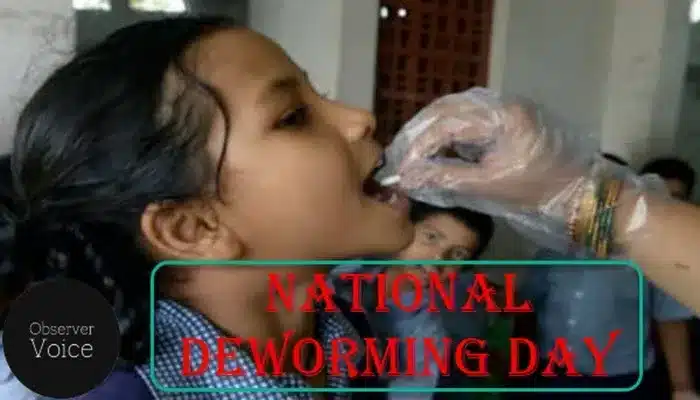National Deworming Day is observed every year on February 10 to raise awareness about the importance of deworming preschool and school-age children. Deworming is done through schools and Anganwadi centers under the Ministry of Health and Family Welfare, Government of India in order to “improve their overall health, nutritional status, access to education and quality of life”.
There are more than 836 million children who are at risk of parasitic worm infections worldwide. According to the World Health Organization 241 million children between the ages of 1 and 14 years are at risk of parasitic intestinal worms in India, also known as Soil-Transmitted Helminths (STH).
National Deworming Day: History
In February 2015, 8.9 crore children were dewormed across 11 states/UTs, achieving 85% coverage in the first round. Following this, 88%, 77%, and 88% of children were covered by NDD in February 2016, August 2016, and February and August 2017 respectively. Since 2015, more than 114 crore doses of albendazole have been administered to children aged 1-19, totaling 26.68 crore children.
Read More: Important Days in February
In order to increase program outreach to private schools and maximize deworming benefits for a large number of children, a variety of awareness activities (media mix) are involved. Awareness campaigns promote the importance of deworming, as well as prevention strategies to improve hygiene and sanitation behaviors.
National Deworming Day: Objective
In order to improve the quality of life, nutritional status, access to education, and health of preschool and school-age children (enrolled and non-enrolled) between the ages of 1-19 years, National Deworming Day is being observed to deworm all preschool and school-age children (enrolled and non-enrolled) between the ages of 1-19 years.

